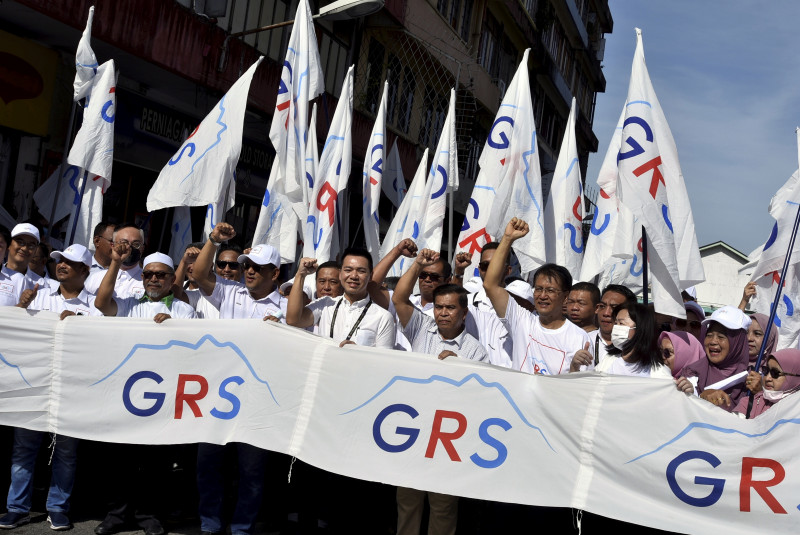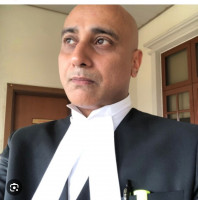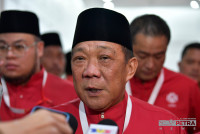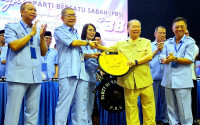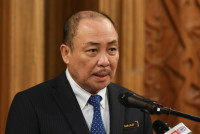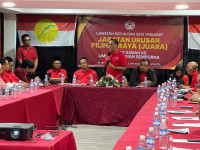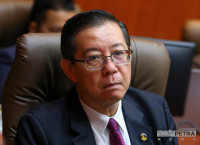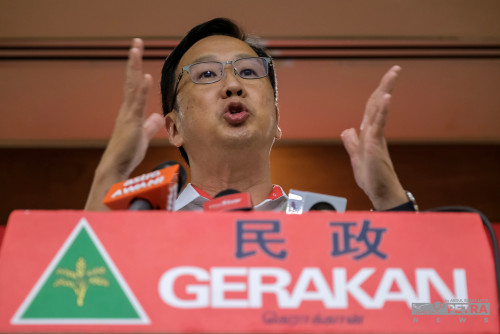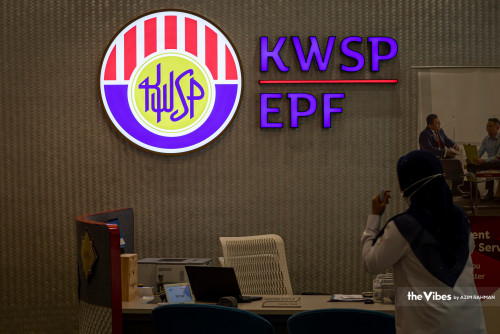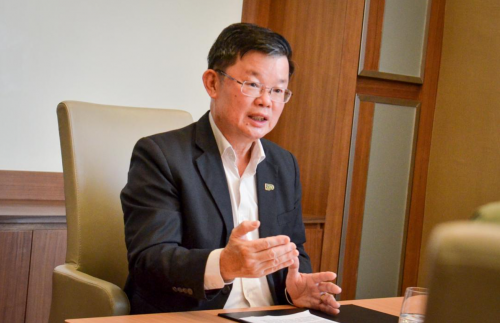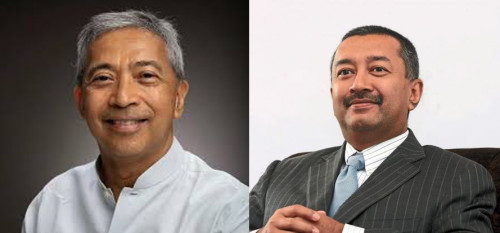
THE honourable chief minister of Sabah had recently issued a statement that he together with several other lawmakers had decided to leave Bersatu.
However, these lawmakers have indicated that they will remain with Gabungan Rakyat Sabah (GRS) and will continue to support the unity government led by Prime Minister Anwar Ibrahim.
Their departure from Bersatu had raised several questions, among them being whether these lawmakers will now have to vacate their respective seats and for by-elections to be held, in view of the recent anti-hopping law that had come into force prior to the 15th general elections.
Malaysia’s anti-hopping law was gazetted on 6th September and has since come into force.
Article 49A of the federal constitution states that a MP, after having been elected to the House of Representatives as a member of a political party, shall cease to be a member of the Dewan Rakyat if they resign as a member of their political party, or cease to be a member of the political party.
There are some who are of the view that Article 49A of the federal constitution does not apply to these lawmakers because despite their resignation from Bersatu, they are still part of GRS.
Further, some are of the view that Sabah has yet to table and adopt the anti-hopping law and therefore Article 49A does not apply to lawmakers from Sabah.
First and foremost, we have to consider if GRS is a political party like Bersatu or Umno. In this regard, it must be understood that GRS is a registered political coalition of different political parties comprising Bersatu, STAR, PBS, SAPP, and Usno, and is not a political party or entity that comprises individuals.
Bersatu, on the other hand, is a political party that is made up of individuals. Hence, the members that form GRS are the political parties and not the individuals who are members of their respective political parties.
Besides, an individual cannot be a member of more than one political party. Therefore, for instance, if an individual is a member of Bersatu, they cannot be registered as a member of GRS.
To hold the view that Article 49A does not apply to these individuals because they had contested under the GRS banner is, with respect, misconceived and wrong.
A plain and simple reading of Article 49A of the federal constitution reveals that it only applies to individuals and not to political parties.
Therefore, Article 49A will apply to MPs who resign as members from their respective parties and in this case, the five lawmakers by leaving Bersatu will have to vacate their seats.
The exception to Article 49A in this situation is if the political party like Bersatu was to migrate en bloc from one coalition of political partners, in this case GRS, to support another coalition of political parties such as Pakatan Harapan, which is not the case here.
Whilst there are some who have stated that Article 49A of the federal constitution does not apply to Sabah lawmakers as the said anti-hopping law has yet to be tabled by the state assembly in Sabah, this reasoning has no merit and cannot be sustained.
This is because Article 1 of the federal constitution expressly states that Sabah and Sarawak shall be the states of the federation, and Article 4 states that the federal constitution shall be the supreme law of the federation. Article 46(2) of the federal constitution expressly states that the House of Representatives shall consist of 25 members from Sabah.
The Sabah constitution is only applicable to the members of the state assembly, while the federal constitution is applicable to all states including Sabah, and specifically Article 49A applies to MPs of the House of Representatives (Dewan Rakyat), not to the state assembly.
Therefore, elected MPs from Sabah are subject to the provisions of Article 49A of the federal constitution.
It is pertinent to note that pursuant to Article 49A, if a MP was to resign as a member from their political party, then they shall immediately cease to be a member of the Dewan Rakyat, and their seat shall become vacant immediately on the date a casual vacancy is established by the speaker of the House.
In order for the speaker to establish the occurrence of such a casual vacancy, a written notice must first be submitted by any member of the House of Representatives pursuant to Article 49A, and the speaker upon having received the said notice shall then establish that there is a casual vacancy, and thereafter notify the Election Commission within 21 days from the date of receiving the said notice.
In this context, for the speaker to establish that there is a casual vacancy, all the speaker has to do is refer to Article 49A(1)(a)(i), which states a MP ceases to be a member of the Dewan Rakyat by virtue of their resignation as a member of their party.
Hence, the issue of whether a lawmaker will voluntarily vacate their seat does not arise.
Their act of resignation as a member of their political party automatically brings about a vacancy to their seat.
But what if the speaker of the House declines to establish that there is a casual vacancy and notify the Election Commission with the strict 21-day time period, as enshrined under Article 49A of the federal constitution? Article 63(1) of the federal constitution states that the validity of any proceedings in Parliament is non-justiciable and shall not be questioned in court.
In the case of Fan Yew Teng v Government of Malaysia 1976, the court held that it had no right to interfere in the disqualification of a member of the House of Representatives.
However, it must be remembered that in Malaysia, the federal constitution is supreme, unlike in the United Kingdom where Parliament is supreme. In Ah Thian v Government of Malaysia 1976, Suffian LP held:
“The doctrine of the supremacy of Parliament does not apply in Malaysia. Here, we have a written constitution.
“The power of Parliament and state legislatures in Malaysia is limited by the constitution, and they cannot make any law they please.”
When we speak of government, it must be remembered that this comprises three branches, namely the legislature, executive, and judiciary.
The courts have a constitutional function to perform, and they are the guardians of the constitution within the terms and structure of the constitution itself; they not only have the power of construction and interpretation of legislation, but also the power of judicial review – a concept that pumps through the arteries of every constitutional adjudication.
In the later case of Yang Dipertua, Dewan Rakyat & Ors v Gobind Singh Deo 2014, the apex court had on occasion said:
“In the course of determining the scope of Article 63 of the constitution, it must be remembered that in Malaysia the constitution is supreme and not Parliament. For our courts to adopt the position in England without recognising the essential distinction in the constitutional systems of the United Kingdom and Malaysia would be erroneous.”
There have been differing views on the issue of justiciability and the operation of Article 63(1) of the federal constitution, and whether the decision by the honourable speaker in relation to Article 49A could or should be allowed to be challenged would be discussed in the near future.– The Vibes, December 12, 2022
Datuk Seri Rajan Navaratnam is a senior lawyer and writes frequently for the Vibes



